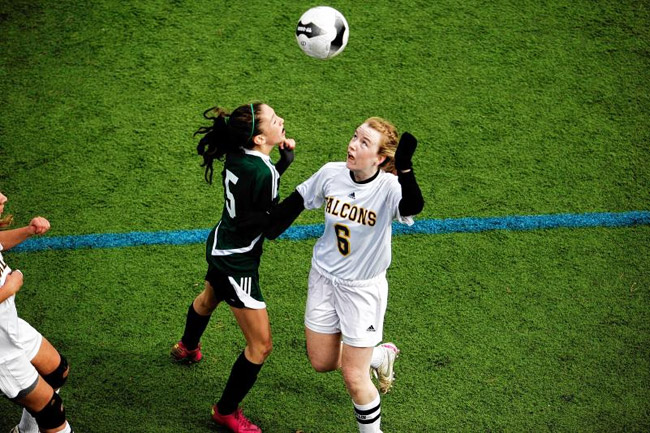
If you take football out of the picture, girls suffer more concussions among high school and college athletes than boys. But the head injury doesn’t discriminate. One concussion is unlikely to do permanent damage, but multiple concussions can be devastating.
Anxious to impress college softball coaches, 17-year-old Hali Jester came back too soon from a concussion and suffered another one.
Jester told Ivanhoe, “I was very dizzy, very nauseous. I did receive headaches, and after my second concussion is when I really started to get these awful migraines, and these awful neck pains.”
Researchers are studying whether boys and girls experience and recover from concussions differently. Girls have longer necks, and may not be as well conditioned as boys. And they may report concussions more often.
Kathleen Bell, MD, Physiatrist and Medical Director of UTSW Concussion Clinic at UT Southwestern Medical Center in Dallas, Texas told Ivanhoe, “Often women don’t have the same muscle protection to control head movement that men do.”
Before being cleared to hit the field again, Hali must pass vision, balance and cognitive tests.
Tonia Sabo, MD, Pediatric Neurologist and Medical Director of Children’s Health Concussion Clinic at UT Southwestern/Children’s Health System explained, “Now, we think she likely has had more prolonged symptoms, because her brain wasn’t healed, it wasn’t ready to go back and receive another blow.”
Jester said, “I went from basically being like a stud to a dud and it’s very difficult. If I realized this could have been this serious beforehand, I would have never gone back so soon.”
After a blow to the head, parents should be alert and seek medical help if their child is: confused, unusually fatigued, emotionally flat or tearful.
Dr. Bell said, “And if you see your child acting in any unusual fashion during a game, it’s time to say to the coach, I think my child should sit out for a little while.”
Dr. Bell supports girls playing sports, as long as they are well conditioned. But, if they experience a concussion, they should not play again, until cleared by a medical professional.
Contributors to this news report include: Don Wall, Field Producer; Cortni Spearman, Assistant Producer; Mark Montgomery, Videographer and Brent Sucher, Editor.